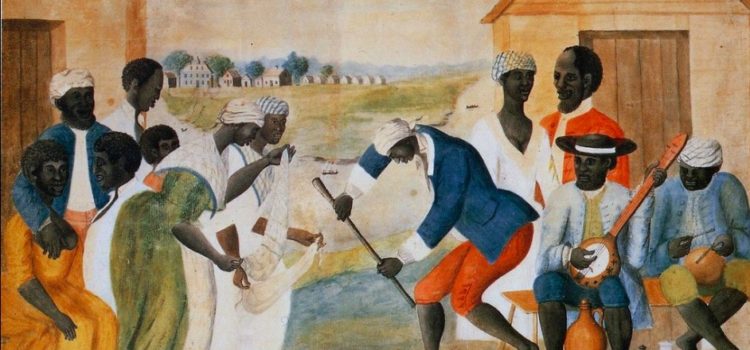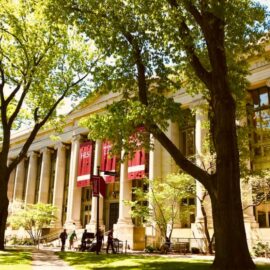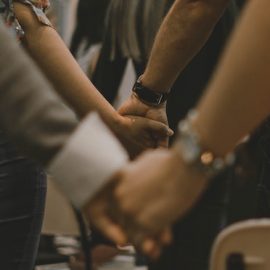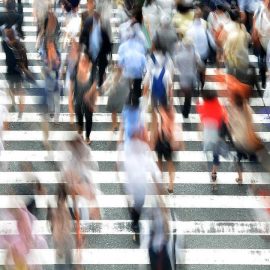

This article is an excerpt from the Shortform summary of "Sapiens: A Brief History of Humankind" by Yuval Noah Harari. Shortform has the world's best summaries of books you should be reading.
Like this article? Sign up for a free trial here .
What is the history of racism in America? Where did it start?
The history of racism in America starts with the European sugar plantations there. Europeans didn’t want to pay for labor since this would have made the sugar too expensive to buy back on the continent, and, by a historical accident, they went to Africa for their unpaid labor.
We’ll look at the early history of racism in America, from the first sugar plantations to discrimination in the 1950s.
History of Racism in America
The history of racism in America starts with the sugar plantations. When Europeans developed large sugar plantations in America, Europeans started eating more and more sugar. The demand for sugar in Europe skyrocketed. But extracting sugar was labor-intensive, and not many paid workers wanted to spend their days under a hot sun in malaria-infested fields. They demanded a high payment.
But increasing worker wages meant increasing the cost of sugar, which would have made it too expensive for most Europeans. So the plantation owners got rid of payment altogether and exchanged contract laborers for slaves. This made sugar cheaper, and it also made it a profitable business to have a share in. In the 18th century, investments in the slave trade could yield 6% per year.
The Atlantic slave trade wasn’t necessarily the result of racism. People who owned plantations and Europeans who bought stock lived far from the plantations and never thought much about the slaves. It was the money in their pockets that kept the slave trade going, igniting the history of discrimination in the U.S.
How Hierarchies Are Formed
The history of racism in the United States depends on hierarchies. Imagined societies are generally propped up by three elements: a historical accident, the fear of pollution, and the vicious cycle of discrimination.
Historical Accident: The roots of prejudicial hierarchies often lie in a random occurrence in history rather than biological differences.
Fear of Pollution: Humans are biologically programmed to feel repulsed by people and animals that might carry disease. This is a survival instinct. But although the fear is biologically-based, its historical manipulation and exploitation is based in fiction. If you want to ostracize a group (such as Jews, gays, blacks, or women), tell your society that they’re polluted and could contaminate you if you interact with them.
Vicious Cycle of Discrimination: Once a random historical event that benefits one group and discriminates against another occurs, that hierarchy is perpetuated by the people who benefit from it. This reinforces the prejudices used to justify the system. These prejudices, in turn, help maintain the system, and the cycle continues.
Let’s look at how these three elements perpetuate discrimination in the history of racism in America.
Example: Racial Discrimination in America
Historical Accident
As we’ve discussed, the history of racism in America starts with a historical accident. One of the primary sources of America’s racial hierarchy is the slave trade of the 16th through 18th centuries. In a sense, it was a historical accident that Europeans imported to America millions of slaves from the African continent rather than Europe or Asia.
- Firstly, it was cheaper to get slaves from Africa than Asia because Africa was closer to America.
- Secondly, a slave trade already existed in Africa. It made financial sense to buy slaves from a market that already existed rather than create a new market on a different continent.
- Thirdly, plantations in American colonies like Virginia, Haiti, and Brazil were plagued by yellow fever and malaria, diseases that originated in Africa. Africans had, over time, become more immune to these diseases than Europeans or Asians, so it made economic sense to invest in people who would live longer to work the plantations. Let that irony sink in: the genetic advantage of immunity contributed to the social disadvantage of Africans. They were slaves to masters who were genetically inferior to them in this sense.
Fear of Pollution
The history of racism in the United States has also depended on the fear of pollution. The Europeans justified their dominance in America by exploiting the idea that blacks were filthy and carried diseases. Even after the abolishment of slavery in America in 1865, the stigma of being unpure continued and intensified. The “Jim Crow” laws in the South were established to “protect” whites from being violated and contaminated by blacks. Whites thought they could catch diseases by studying in the same schools, shopping in the same stores, and eating at the same restaurants as blacks. Interracial sex was considered the filthiest and most dangerous violation.
Vicious Cycle of Discrimination
Finally, the history of racism in America depends on the vicious cycle of discrimination. While the institution of slavery was still in place, theologians spread the idea that blacks were descendants of Ham, the son of Noah whose offspring were cursed to be slaves. Biologists used the myth of moral and intellectual inferiority to justify African slavery. After slavery was abolished, these myths perpetuated the prejudices that created them, creating a vicious circle.
The Cycle of Economic Disadvantages
The Fourteenth Amendment gave all citizens equal protection under the law, regardless of race. But 200 years of slavery meant that even with these legal changes, the newly free blacks were poor and uneducated. Their chances of getting a well-paid job were low. Therefore, the chance that their children, and their children’s children, would get a good education and a good job were also low.
The Cycle of Racial Disadvantages
But of course, their disadvantages weren’t purely economic.
The Industrial Revolution and subsequent flood of immigrants created an America in which many people were able to start their lives in America poor and end them rich. But although the rags-to-riches story rung true for many immigrants, it didn’t for blacks. Discrimination kept their education and job prospects low. Whites saw their lack of education and money as a result of their laziness and ignorance rather than their lack of opportunity. They also viewed them as dissolute and unclean—polluted, essentially. The stigma reinforced their inability to get jobs, which in turn reinforced the stigma.
Rather than getting better over time, discrimination in America (and elsewhere) gets more entrenched over time. Money begets money, and poverty begets poverty. The cycle doesn’t get broken on its own over time. Whites think that because slavery was abolished over 150 years ago, it can no longer explain the discrepancy between white and black career and monetary success in America. Whites see few black professors, doctors, and lawyers, and conclude that this is because they’re not intelligent or hard-working enough to be professors, doctors, and lawyers. This prejudice keeps employers from hiring qualified black candidates, and the vicious circle continues.
Racial prejudice has become so ingrained in our culture that we’ve stopped seeing it, even when it’s right in front of our faces in the form of the Anglo beauty ideals promoted by every commercial and billboard. We’re still living the history of racism in America and the history of discrimination.
The genetic differences between groups of Sapiens is negligible. Genes can’t explain why some groups are privileged and others aren’t. We must see these historical developments in terms of chance events that are perpetuated by those who benefit.
———End of Preview———

Like what you just read? Read the rest of the world's best summary of "Sapiens" at Shortform . Learn the book's critical concepts in 20 minutes or less .
Here's what you'll find in our full Sapiens summary :
- How Sapiens outlived and outlasted the 8+ other human-like species on Earth
- The 3 critical revolutions in human existence that led to our domination of the planet
- How much of what powers our world today is really just a shared mass delusion
- What the future of humanity might look like






